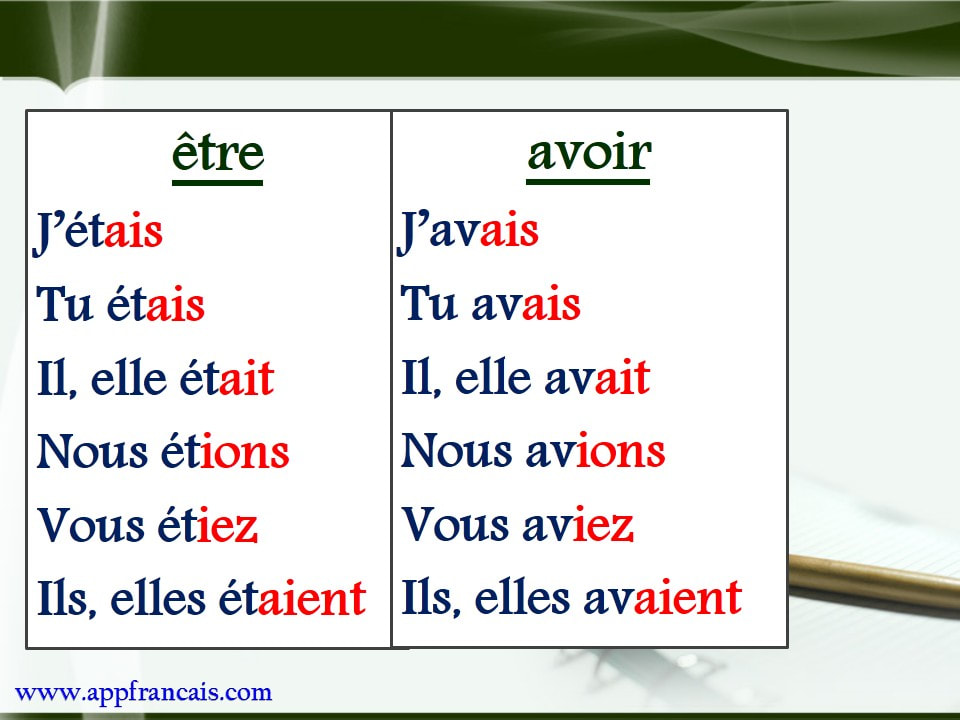

Then add the correct ending to the stem, depending on whether you are talking about je, tu, il, elle, on, nous, vous, ils or elles. the infinitive without the final e of -re verbs, for example, attendr. Être is the only irregular verb in the imperfect, because the present tense nous sommes has no -ons to drop. To form the conditional in French, you have to use: the infinitive of -er and -ir verbs, for example, donner-, finir-. Some of the conjugations of avoir are so irregular that you have to simply memorize them. J'étais en train de faire la vaisselle – I was (in the process of) doing the dishesįrench imperfect conjugations are very easy, as the imperfect of virtually all verbs - regular and irregular - is formed the same way: drop the -ons ending from the present indicative nous form of the verb and adding the imperfect endings. Tenses of the french conjugation Present (prsent) Past (pass): formed with an auxiliary verb in the subjunctive present Imperfect (imparfait) Pluperfect (. The expressions être en train de- and venir de- in the pastĮ.g. Si j'avais de l'argent, j'irais avec toi – If I had some money, I would go with you Ah ! Si j'étais riche ! – Oh! If only I was rich!Į.g. J'étais au marché et j'ai acheté des pommes – I was at the market and I bought some applesĮ.g. Je faisais la queue parce que j'avais besoin de billets – I stood in line because I needed ticketsīackground information in conjuctions with the passé composéĮ.g. Il était midi et il faisait beau – It was noon and the weather was niceĪctions or states of an unspecified durationĮ.g. The pass compos and imparfait are each used quite differently in narration. The imparfait also has several idiomatic uses. Physical and emotional descriptions: time, weather, age, feelings…Į.g. The imperfect tense ( l'imparfait) has two primary uses: to describe on-going actions and states of being in the past, and to state habitual actions in the past. Quand j'étais petit, nous allions à la plage chaque semaine - When I was young, we used to go to the beach every week.

#Imparfait endings french tv
The imperfect can indicate any of the following:Į.g. How do you form the imperfect tense in French You take the stem: regard Since you want to say he, you have to use il The ending for il is ait TV in French. One of the key differences between the imperfect tense in French and its equivalent in English is the fact that in French we express the tense with a single word, while. The other main past tense in French is the passé composé. For example, here are the present tense conjugations for the regular -ir verbs choisir, finir (to finish), and réussir (to succeed): Pronoun. The beginning and end of the state of being or action are not indicated, and the imperfect is very often translated in English as "was" or "was _-ing." Imparfait French, also referred to as the French imperfect tense, is one of the main tenses relating to past events. To conjugate an -ir verb in the present tense, remove the infinitive ending and then add the appropriate endings. The French imperfect (imparfait) is a descriptive past tense which indicates an ongoing state of being or a repeated or incomplete action.


 0 kommentar(er)
0 kommentar(er)
